By 2030, Proximus wants to become a truly circular company. At the same time, the pandemic has strengthened the social role of a telecom operator. The mission towards a sustainable strategy therefore goes further than the ecological footprint. Decathlon and H.Essers are also taking their strategy beyond climate ambitions.
corporate social responsibility
climate ambitions
Sustainability goes beyond

Joeri Moons, Sustainable Development Leader at Decathlon Belgium
“When we think of sustainability, we also think of diversity and inclusion.”

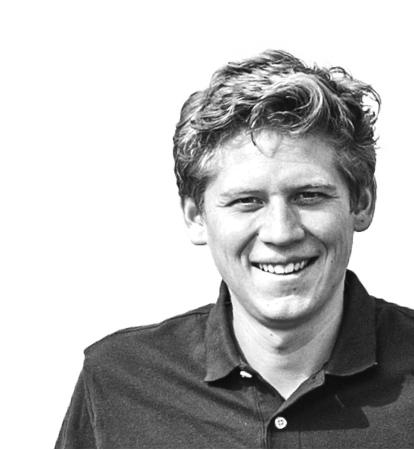
Collin Springuel,
Business Unit Manager
at H.Essers
“Mental and physical well-being is part of our strategy.”

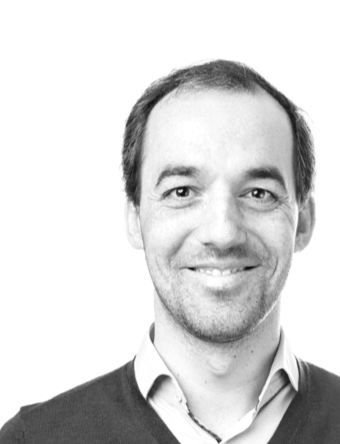
With the Midas project, Proximus recycled almost 214 tons of copper in the first quarter. More and more devices – modems, decoders, Wi-Fi Boosters, etc – will be given a new life: at the end of the first quarter of 2021, the counter will stand at more than 200,000. You can still deposit your old mobile phone in the shops. The goal is to collect 150,000 devices in 2021 with the Don’t miss the call promotion.
Midas project
Proximus was the first Belgian telecom operator to publish a Sustainable Finance Framework. In doing so, Proximus aligns its financing strategy with sustainable development goals. The aim is to (re)finance projects with measurable environmental or social value.
Proximus received an ‘A’ score from the CDP, an international non-profit organization specializing in the environment, for its efforts to combat global warming. Together with AB-Inbev, Proximus was the only Belgian company to achieve the 'A' label.
The pandemic has demonstrated how important a telecom operator is in our society. Digital tools help people to live better and work more efficiently. In an inclusive society, those tools must be available to everyone. Proximus therefore wants to reduce the digital divide. Especially for young people in poverty, seniors, and people with a disability. To this end, Proximus has set up partnerships with Technobel, the coding school 19, Molengeek and Bednet/ClassConnect.
Social role
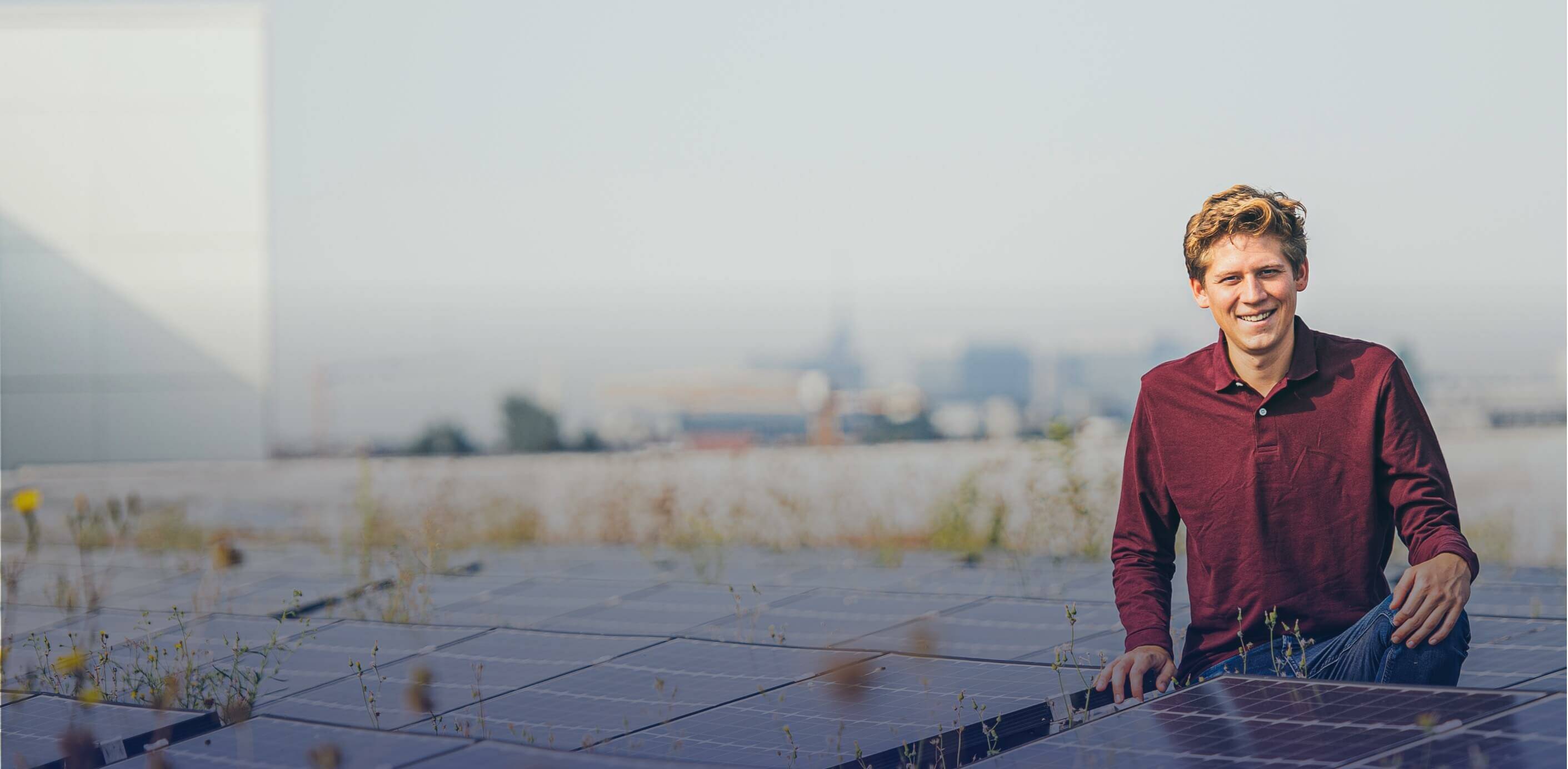
The 5 focus points of Decathlon's sustainability policy
Joeri Moons, Decathlon Belgium’s Sustainable Development Leader: “We started our company-wide inventory in 2016, to assess the ecological footprint of transport, all our products, the stores, etc. That’s the benchmark for continuous improvement – with 2026 as the target.”
DECATHLON

“Obviously, climate and environment are top priorities. That includes issues like renewable energy consumption, the rollout of carbon-neutral bike delivery in the inner city and reducing the carbon footprint of every product. Eighty percent of our sales is the product of in-house design and production. We control the entire supply chain for those products so we can make changes relatively easily. For instance, we can decide to produce more locally.”
Climate and environment

“Lighting and climate control, i.e., heating in the winter and air conditioning in the summer, account for most of the energy consumption in the stores. We’ve installed LED lighting throughout, and limit consumption further through close monitoring. The lighting and climate control have been programed to prevent unnecessary consumption at night or on closing days. And our buildings are equipped with solar panels, which supply 30 percent of our energy. Extra energy that we purchase has to be renewable and generated locally.”
Energy efficiency

“Yes, it’s also imperative. We can only be genuinely sustainable once all the other links in the chain are too. We introduce and emphasize how important our science-based targets are to our key suppliers. In turn, they set the example for their partners. That’s how we build a sustainable network. Look, three quarters of our CO2 emissions as a company are from producing our products. That’s where we can have the biggest impact. For example, we signed a charter with several major sports brands. That charter commits us to using more organic textiles, supporting their production, and making them affordable.”
Sustainable supply chain

“In terms of sustainability, diversity and inclusivity are priorities too. To put that into practice, for example, we render sports more accessible for people with disabilities and we adjust our price strategy in poorer countries. On top of that, embedding sustainability as a lasting value within our corporate culture is something we see as important. Business isn’t just about turnover or the numbers; it’s also about making sure it happens ethically.”
Diversity and inclusion

“We aren’t actually a recycling company, which is why we work with partners. We do collect certain products, however, such as bikes and fitness equipment. We repair and restore them, giving them a new lease on life. We’re also looking at new business models. For instance, we’re considering subscription or rental plans. That way people can play more sports without having to buy new equipment every time.”
Reuse of products
Joeri Moons
Has been Sustainable Development Leader since 2018.
“We render sports more accessible for people with disabilities and we adjust our price strategy in poorer countries.”

Decathlon
Decathlon Belgium has 2,500 employees in 39 branches and is part of the Oxylane Group. The retail chain wants to make sports accessible to everyone, with a wide range of products at competitive prices.
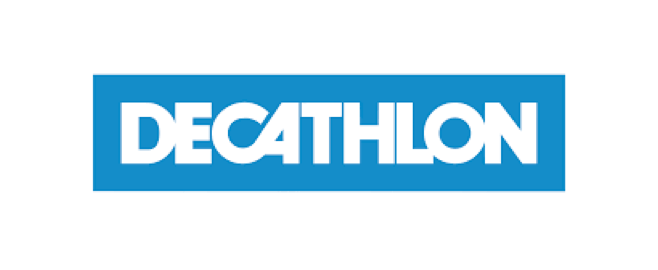
Safe shopping thanks to Entrance Monitoring
Innovation also contributes to a pleasant shopping experience. To guarantee the safety of customers during the pandemic, the sports shop installed Entrance Monitoring in 25 of the 37 Belgian stores

Interview
“At the entrance, a screen informs customers in real time whether or not they can enter the store.”
Olivier Flament, Data & Direct Marketing Manager at Decathlon Belgium

Proximus targets a CO2-neutral supply chain by 2030


Towards a sustainable supply chain
Collin Springuel, Business Unit Manager at H.Essers, explains, “For our sustainability strategy, we at H.Essers use five lines of force as a compass. These go beyond just the ecological footprint, and include, for example, the mental and physical well-being of our employees.”
H.Essers

PROXIMUS TARGETS A CO2-NEUTRAL SUPPLY CHAIN BY 2030
Carbon-neutral
“For example, we have already invested a great deal in our own renewable energy, and we are strongly committed to synchromodality: the ability to use different modes of transport such as rail, inland waterways, and air. When choosing the appropriate mode of transport, we map out the impact on CO2 emissions. We make intensive use of rail transport, for example, via the New Silk Road to China.”
Shared mission
H.Essers found the ideal partner in Proximus to shape a shared sustainability mission. Collin explains, “There are various flows within the Proximus supply chain: technicians in urgent need of parts, serving retail outlets or delivering to customers’ homes. Moreover, there are major supply peaks, for example, on Black Friday. Together, we will look for ways to further optimize that complex supply chain, from storage to logistics.”
“To this end, we have coordinated our software, such as the warehouse systems, with each other. We are embracing new technologies, including automatic processing machines tailored to the specifics of Proximus’s goods flows. But we have also found common ground in the area of office and warehouse equipment.”
Proximus and H.Essers decided to build a distribution center in Courcelles a decade ago. In doing so, they immediately focused on obtaining the BREEAM sustainability certificate. Collin continued, “This translates into solar panels, heat pumps, heat recovery, and intensive energy monitoring. We also offer employment opportunities to people who cannot find jobs in the ‘regular’ labor circuit.”
“We regularly organize strategic meetings, during which we zoom in on making our processes more sustainable. This interaction ensures, for example, that the large-scale exchange of modems and decoders takes place in a sustainable manner. In addition, we place the circular economy high on the agenda. Our common ambition is to make the distribution center the benchmark for circularity in Belgium.”
Sustainability as a process
“When choosing the appropriate mode of transport, we map out the impact on CO2 emissions.”
Business Unit Manager at H.Essers. He has extensive experience in the logistics world and has been helping to optimize the supply chains of H.Essers’s clients for over three years.
COLLIN SPRINGUEL
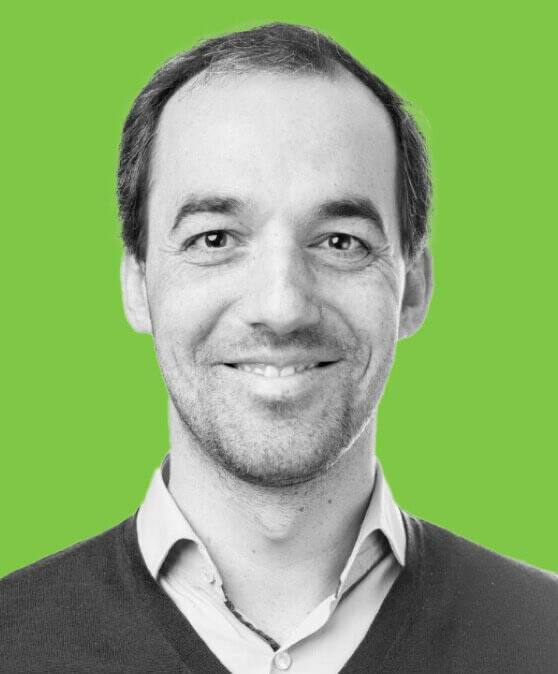
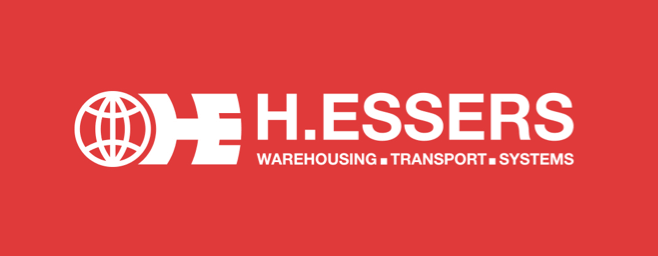
H.Essers is an international logistics service provider. The company is located on Transportlaan in the Limburg city of Genk. H.Essers owes its name to founder Henri Essers, who started transporting cattle in 1928. H. Essers is now active in 19 countries with 1,475 trucks, 1,108,000 m2 of warehouses and 6,600 employees.

corporate social responsibility
Sustainability goes beyond climate ambitions
By 2030, Proximus wants to become a truly circular company. At the same time, the pandemic has strengthened the social role of a telecom operator. The mission towards a sustainable strategy therefore goes further than the ecological footprint. Decathlon and H.Essers are also taking their strategy beyond climate ambitions.
Midas project
With the Midas project, Proximus recycled almost 214 tons of copper in the first quarter. More and more devices – modems, decoders, Wi-Fi Boosters, etc – will be given a new life: at the end of the first quarter of 2021, the counter will stand at more than 200,000. You can still deposit your old mobile phone in the shops. The goal is to collect 150,000 devices in 2021 with the Don’t miss the call promotion.
Proximus was the first Belgian telecom operator to publish a Sustainable Finance Framework. In doing so, Proximus aligns its financing strategy with sustainable development goals. The aim is to (re)finance projects with measurable environmental or social value.
Proximus received an ‘A’ score from the CDP, an international non-profit organization specializing in the environment, for its efforts to combat global warming. Together with AB-Inbev, Proximus was the only Belgian company to achieve the 'A' label.
Social role
The pandemic has demonstrated how important a telecom operator is in our society. Digital tools help people to live better and work more efficiently. In an inclusive society, those tools must be available to everyone. Proximus therefore wants to reduce the digital divide. Especially for young people in poverty, seniors, and people with a disability. To this end, Proximus has set up partnerships with Technobel, the coding school 19, Molengeek and Bednet/ClassConnect.
Collin Springuel,
Business Unit Manager
at H.Essers
“Mental and physical well-being is part of our strategy.”


Joeri Moons, Sustainable Development Leader at Decathlon Belgium
“When we think of sustainability, we also think of diversity and inclusion.”



“De Vlaamse ambtenaar is altijd correct geconnecteerd, onafhankelijk van zijn fysieke werkplek.”

DECATHLON
The 5 focus points of Decathlon's sustainability policy
Joeri Moons, Decathlon Belgium’s Sustainable Development Leader: “We started our company-wide inventory in 2016, to assess the ecological footprint of transport, all our products, the stores, etc. That’s the benchmark for continuous improvement – with 2026 as the target.”

“Obviously, climate and environment are top priorities. That includes issues like renewable energy consumption, the rollout of carbon-neutral bike delivery in the inner city and reducing the carbon footprint of every product. Eighty percent of our sales is the product of in-house design and production. We control the entire supply chain for those products so we can make changes relatively easily. For instance, we can decide to produce more locally.”
Climate and environment

“In terms of sustainability, diversity and inclusivity are priorities too. To put that into practice, for example, we render sports more accessible for people with disabilities and we adjust our price strategy in poorer countries. On top of that, embedding sustainability as a lasting value within our corporate culture is something we see as important. Business isn’t just about turnover or the numbers; it’s also about making sure it happens ethically.”
Diversity and inclusion

“We aren’t actually a recycling company, which is why we work with partners. We do collect certain products, however, such as bikes and fitness equipment. We repair and restore them, giving them a new lease on life. We’re also looking at new business models. For instance, we’re considering subscription or rental plans. That way people can play more sports without having to buy new equipment every time.”
Reuse of products

“Lighting and climate control, i.e., heating in the winter and air conditioning in the summer, account for most of the energy consumption in the stores. We’ve installed LED lighting throughout, and limit consumption further through close monitoring. The lighting and climate control have been programed to prevent unnecessary consumption at night or on closing days. And our buildings are equipped with solar panels, which supply 30 percent of our energy. Extra energy that we purchase has to be renewable and generated locally.”
Energy efficiency

“Yes, it’s also imperative. We can only be genuinely sustainable once all the other links in the chain are too. We introduce and emphasize how important our science-based targets are to our key suppliers. In turn, they set the example for their partners. That’s how we build a sustainable network. Look, three quarters of our CO2 emissions as a company are from producing our products. That’s where we can have the biggest impact. For example, we signed a charter with several major sports brands. That charter commits us to using more organic textiles, supporting their production, and making them affordable.”
Sustainable supply chain
Joeri Moons
Has been Sustainable Development Leader since 2018.
“We render sports more accessible for people with disabilities and we adjust our price strategy in poorer countries.”

Safe shopping thanks to Entrance Monitoring
Innovation also contributes to a pleasant shopping experience. To guarantee the safety of customers during the pandemic, the sports shop installed Entrance Monitoring in 25 of the 37 Belgian stores

Interview
“At the entrance, a screen informs customers in real time whether or not they can enter the store.”
Olivier Flament, Data & Direct Marketing Manager at Decathlon Belgium
Decathlon
Decathlon Belgium has 2,500 employees in 39 branches and is part of the Oxylane Group. The retail chain wants to make sports accessible to everyone, with a wide range of products at competitive prices.


Proximus targets a CO2-neutral supply chain by 2030

“De Vlaamse ambtenaar is altijd correct geconnecteerd, onafhankelijk van zijn fysieke werkplek.”

H.Essers
Towards a sustainable supply chain
Collin Springuel, Business Unit Manager at H.Essers, explains, “For our sustainability strategy, we at H.Essers use five lines of force as a compass. These go beyond just the ecological footprint, and include, for example, the mental and physical well-being of our employees.”

PROXIMUS TARGETS A CO2-NEUTRAL SUPPLY CHAIN BY 2030
Shared mission
Carbon-neutral
“For example, we have already invested a great deal in our own renewable energy, and we are strongly committed to synchromodality: the ability to use different modes of transport such as rail, inland waterways, and air. When choosing the appropriate mode of transport, we map out the impact on CO2 emissions. We make intensive use of rail transport, for example, via the New Silk Road to China.”
H.Essers found the ideal partner in Proximus to shape a shared sustainability mission. Collin explains, “There are various flows within the Proximus supply chain: technicians in urgent need of parts, serving retail outlets or delivering to customers’ homes. Moreover, there are major supply peaks, for example, on Black Friday. Together, we will look for ways to further optimize that complex supply chain, from storage to logistics.”
“To this end, we have coordinated our software, such as the warehouse systems, with each other. We are embracing new technologies, including automatic processing machines tailored to the specifics of Proximus’s goods flows. But we have also found common ground in the area of office and warehouse equipment.”
Business Unit Manager at H.Essers. He has extensive experience in the logistics world and has been helping to optimize the supply chains of H.Essers’s clients for over three years.
COLLIN SPRINGUEL
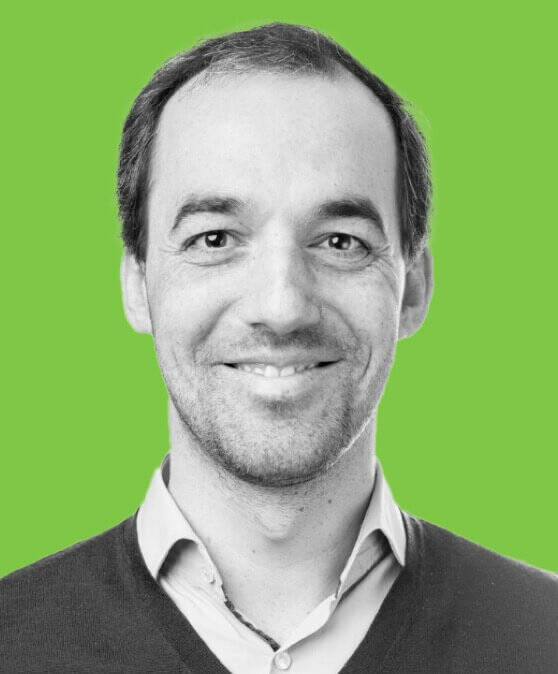
“When choosing the appropriate mode of transport, we map out the impact on CO2 emissions.”
Sustainability as a process
Proximus and H.Essers decided to build a distribution center in Courcelles a decade ago. In doing so, they immediately focused on obtaining the BREEAM sustainability certificate. Collin continued, “This translates into solar panels, heat pumps, heat recovery, and intensive energy monitoring. We also offer employment opportunities to people who cannot find jobs in the ‘regular’ labor circuit.”
“We regularly organize strategic meetings, during which we zoom in on making our processes more sustainable. This interaction ensures, for example, that the large-scale exchange of modems and decoders takes place in a sustainable manner. In addition, we place the circular economy high on the agenda. Our common ambition is to make the distribution center the benchmark for circularity in Belgium.”

H.Essers
H.Essers is an international logistics service provider. The company is located on Transportlaan in the Limburg city of Genk. H.Essers owes its name to founder Henri Essers, who started transporting cattle in 1928. H. Essers is now active in 19 countries with 1,475 trucks, 1,108,000 m2 of warehouses and 6,600 employees.